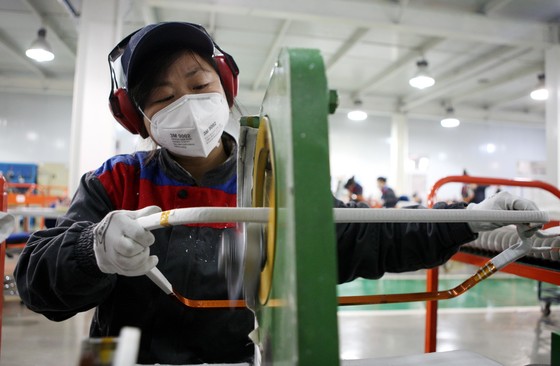Ethics
Social dialogue at Alstom

Alstom is fully aware that employee engagement relies on a permanent and constructive relationship with employees and their representatives. We are therefore committed to a concerted approach at all levels of the organisation by maintaining everywhere a constant and transparent social dialogue, guided by Alstom values - Agile, Inclusive and Responsible – and our principles of ethics and social responsibility, which form the foundation of Alstom Code of Ethics.
3 levels of representation coexist within the Group. These are the main forums for exchanges between management and employee representatives, particularly about the industrial, economic, financial, and social strategy of Alstom. With this set-up, and in compliance with the legal and regulatory regulations, the social dialogue is formally framed through representative bodies close to the realities of the businesses, countries, and geographical areas.
-
13meetings with European representatives in 2022
-
0incidents of interference with freedom of association
-
208collective agreements signed in 2022
Freedom of association and collective bargaining at the heart of Alstom’s social commitment
It is Alstom’s firm belief that a transparent and responsible social dialogue at all levels in the company is the best way to support and strengthen mutual trust between management and employees. Alstom's commitment to a transparent and constant social dialogue is clearly reported in its Code of Ethics, through which the company undertakes to respect freedom of association and the right to collective bargaining.

Ethics
Read moreBased on international reference standards such as the United Nations Declaration of Human Rights and International Labour Organization’s standards, the Alstom Code of Ethics reflects our commitment, which aim in particular to :
- Respect all laws governing human rights and promote fair labour practices.
- Respect freedom of association and recognise the right to collective bargaining.
- Prevent and eliminate all forms of forced or compulsory labour.
- Guarantee the effective abolition of child labour.
- Ensure the elimination of all discrimination in respect of employment and occupation.
Just as the company is committed to respecting freedom of association, Alstom is also committed to recognising collective bargaining as a fundamental practice. The 2022 internal Alstom social survey conducted in 32 countries where Alstom has employees (representing 97% of the total workforce), confirms that 63.7 % of the Group's employees are covered by a collective agreement. In 2022, 208 agreements have been signed worldwide, referring to multiple aspects of the working environment, and reflecting the agility of the company and its social partners. It includes agreements dealing with
- Career development,
- Flexibility of working time,
- Employability/life-long learning,
- Stress management,
- Equal opportunities,
- Environment, Health and Safety (EHS),
- Restructuring and reorganisation implying workforce adjustments
The conclusion of these promising and innovative agreements necessarily proves the existence of an advanced level of dialogue and discussion with the social partners. On top of legal regulations and national agreements governing the prerogatives of employee representatives and their rights, Alstom has concluded specific company agreements to foster involvement in employee representation and the implementation of related guarantees, in countries such as France.
As a global company where diversity and inclusion are at the core of our vision and values, we want to create an inclusive culture wherever we operate. In addition to building close links with staff representatives worldwide, Alstom seeks for a constant and transparent dialogue with all its employees, thereby fostering cohesion and a sense of belonging. In particular, in countries not covered by collective bargaining mechanisms, Alstom has put in place various collective initiatives and practices that address social topics and ensure that employees' expectations are considered at all levels.
A long-standing European partner
Alstom is implementing a sustainable social strategy as its employees are the key to its success. As an international Group with a strong presence in Europe, where nearly 60% of its employees work, maintaining a continuous dialogue with our European social partners is essential, especially in a constantly changing environment. Since more than 10 years, Alstom and IndustriAll Europe have developed over time solid and constructive exchanges on all major transformation and change needs envisaged by the sector and the company. In order to frame a regular social dialogue mechanism, Alstom and IndustriAll concluded in 2011 and renewed in 2016 and 2020, an agreement on "The anticipation of change and transformation within Alstom".
In addition to the involvement required by transformation projects of employee representative bodies and the articulation between the European and local levels, this agreement determines the measures that Alstom undertakes to implement in the event of major organizational changes with consequences on employment. By signing this International Framework Agreement, which disciplines, in the common interest of the parties, the commitment to seek solutions that protect our people and their employability in the event of restructuring and reorganisation needs, Alstom confirms its determination to be a responsible company.




